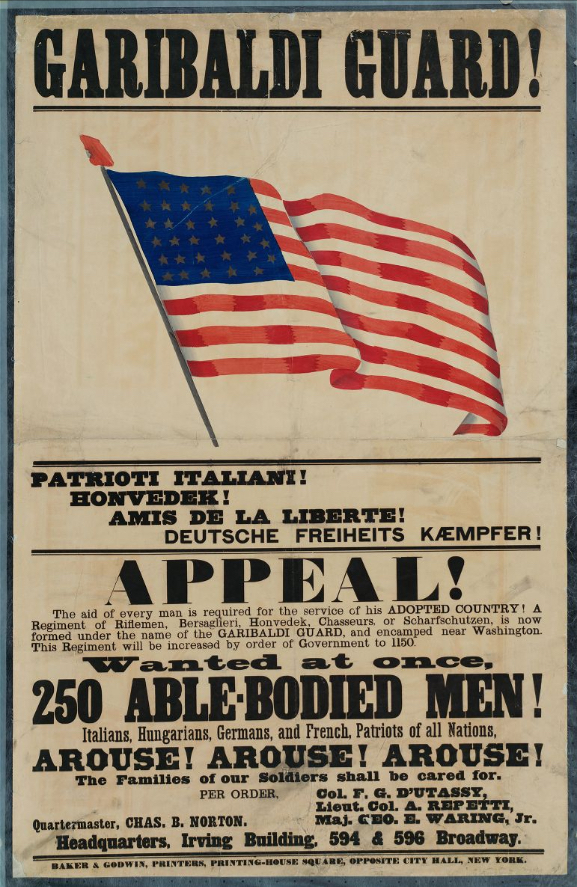Guest post by Jacqueline LaFrance
LaFrance is the Massachusetts Council for the Social Studies co-facilitator for a professional learning community (PLC) bringing together history teachers and English Language Development specialists most months to consider how best to support multilingual learners in history classrooms. The PLC is part of the English Learner Collaborations project, supported by a Teaching with Primary Sources grant from the Library of Congress.
“Educators really need in-classroom support and helpful, visual ways to adapt curriculum even though they are not necessarily trained experts in the field of ELLs.”
Educators comprising our PLC group have continued to build momentum – for some this is their second year – as they strengthen theoretical and practical understandings. The chance for History teachers to meet with ML/EL colleagues from across MA about engaging multilingual learners is a rare opportunity to compare notes about methods and using primary sources.
Meetings are facilitated by a pair of seasoned Massachusetts teachers along with our program administrator. Middle school and high school teachers and curriculum coaches, from 15 to 20 each time, meet remotely from across MA monthly; some teachers are colleagues from the same district or building. We are energized by our desire to connect and support each other.
Our discussion topics have included
- Getting to know multilingual students - WIDA templates for leveraging linguistic, cultural, experiential and social-emotional assets
- interpreting standardized annual WIDA testing scores
- Engaging Multilingual Learners through Inquiry (WIDA eWorkshop).
- accessing grade-level texts, including primary sources
- translanguaging
- supporting newcomers
Each of our meetings starts with a warm-up exercise featuring a visual or audio primary source. For example, in February we began our meeting about translanguaging strategies by displaying Garibaldi guard! Patrioti Italliani! Honvedek! Amis de la liberte! Deutsche Freiheits Kaempfer! Appeal! We asked participants to take two minutes to think about the home languages of their ML students. We then added them in a waterfall fashion to chat to produce a voluminous and diverse flow of languages.
This winter we prepared for our discussion of translanguaging by previewing a video by Read. Inquire. Write entitled Engaging Bi/Multilingual Students in Social Studies Inquiry and Argument Writing and reading an article explaining translanguaging by The Translanguaging School. Most recently we reviewed best practices around supporting newcomers by reading an excerpt of Jessica Lander’s book, Making Americans:: Stories of Historic Struggles, New Ideas, and Inspiration in Immigrant Education and by reviewing Chapter 3, “High-Quality Instruction for Newcomer Students” of the Department of Education’s Newcomer Toolkit.
In December we featured a lesson plan showcase in which each participant chose a strategy or resource to share during a 5-7 minute segment in their breakout group that highlighted a topic which we had discussed as a group in the fall. It was collaboratively rich and meaningful! We listened as collaborators described the delight, surprise, and wonder that their students exhibited when engaging with primary sources. The students’ questions and responses deepened their content understandings and their connection to each other in the classroom.
We are preparing for our last PLC meeting of this school year which will take place on May 7. Our participants are busy planning for a final lesson plan showcase session where they will again be presenting informally in their breakout groups. Some participants are preparing to submit their lesson plan segments for PDPs from the MA Council for Social Studies.
Participants’ regular reflection supported by this community has deepened their level of commitment. Here are some of the comments shared during our PLC meetings this year:
- “This is our responsibility: to ensure all students are learning, which can often be challenging within the system of public school.”
- “The Newcomer Toolkit made me think about supporting ML / EL students' metacognitive thinking. I'd like to work with the teachers in my department to build in opportunities for our students to reflect on their learning, identify their gains, and set goals for their own learning / next steps.”
We continue to witness our teacher participants rising to the challenge and using their creativity and collegiality to solve instructional challenges with more and more intention and confidence.
Garibaldi guard! Patrioti Italliani! Honvedek! Amis de la liberte! Deutsche
Freiheits Kaempfer! Appeal! 1863 New York Historical Society Digital Collections
In the 2023-2024 academic year, thanks to a grant from the Eastern Region of the Teaching with Primary Sources program, the PLC bringing together social studies teachers with English Language Development teachers was funded for a second year. The 2022-2023 PLC is described here.




